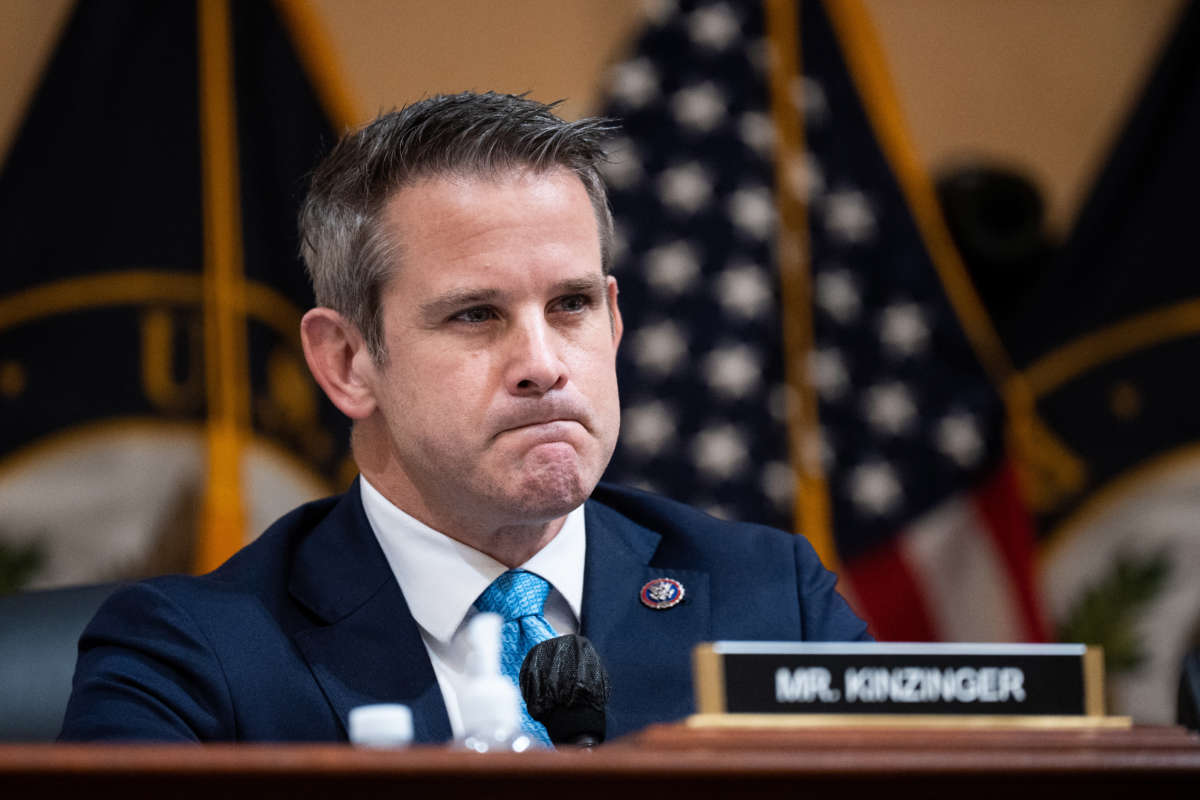Did you know that Truthout is a nonprofit and independently funded by readers like you? If you value what we do, please support our work with a donation.
If former President Donald Trump wants to comply with a subpoena request to appear before the House select committee investigating the January 6 Capitol attack, his condition that he would only do so on live television would have to be negotiated, one member of the commission said over the weekend.
Rep. Adam Kinzinger, a congressman from Illinois who is one of only two Republican members of the committee, implied that conditions would have to be negotiated before the panel would agree to Trump’s terms.
Last week, New York Times reporter Maggie Haberman said sources close to Trump had told her that he was considering meeting with the committee, but only “so long as he gets to do so live.”
“I think that’s going to be a negotiation,” Kinzinger said to ABC News’s George Stephanopoulos on Sunday. “I’ll only address that when we know for sure whether or not the president has tried to push to come in and talk to us live.”
Kinzinger expressed skepticism over the rumors that Trump will comply with the subpoena order the committee issued last week. “I have long learned in this that people will say something publicly” before choosing to do something else, the lawmaker said.
But Kinzinger also noted that Trump has said in the past that “he has nothing to hide.”
“So he should come in on the day we asked him to come in,” Kinzinger added. “If he pushes off beyond that, we’ll figure out what to do next.”
Kinzinger was noncommittal on whether the committee would push for contempt of Congress charges should Trump try to sidestep the subpoena order. “That’s a bridge we cross if we have to get there,” he said.
But the Illinois Republican also said that Trump would be breaking the law if he didn’t comply.
“We made a decision in front of the American people, not behind closed doors, to begin the process of subpoenaing the former president. He’s required by law to come in,” Kinzinger said.
It’s possible that Trump could be punished for refusing to appear before the committee, following the panel’s unanimous subpoena vote last week. Although other individuals have avoided being charged by the Department of Justice (DOJ), Steve Bannon, an ally to the former president who briefly served in the White House, was charged and convicted of contempt of Congress this summer following his refusal to comply with the January 6 committee’s subpoena.
On Monday, the DOJ submitted its recommendations for Bannon’s sentencing, stating that he should serve six months in prison and pay $200,000 in fines. Trump could face similar sentencing if the House votes to recommend the same charges against him. Even if control of Congress changes hands between now and January, if the House makes the recommendation to the DOJ, the department can still pursue those charges.
Press freedom is under attack
As Trump cracks down on political speech, independent media is increasingly necessary.
Truthout produces reporting you won’t see in the mainstream: journalism from the frontlines of global conflict, interviews with grassroots movement leaders, high-quality legal analysis and more.
Our work is possible thanks to reader support. Help Truthout catalyze change and social justice — make a tax-deductible monthly or one-time donation today.
